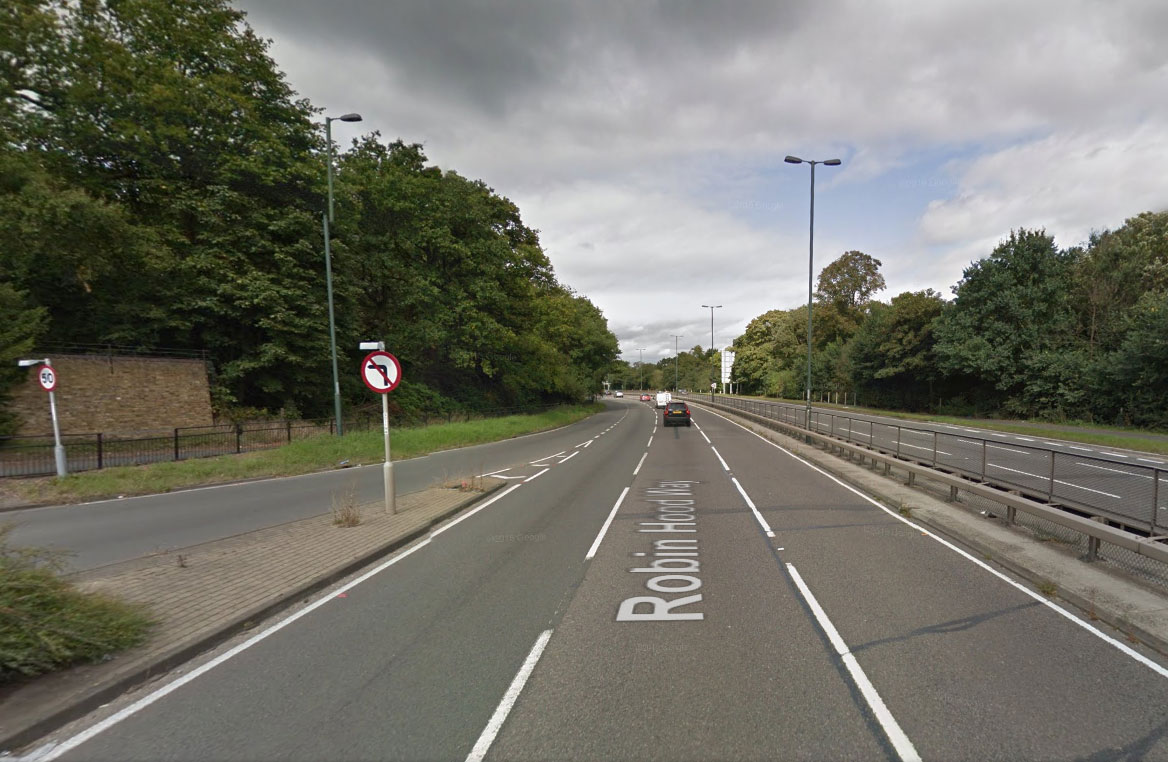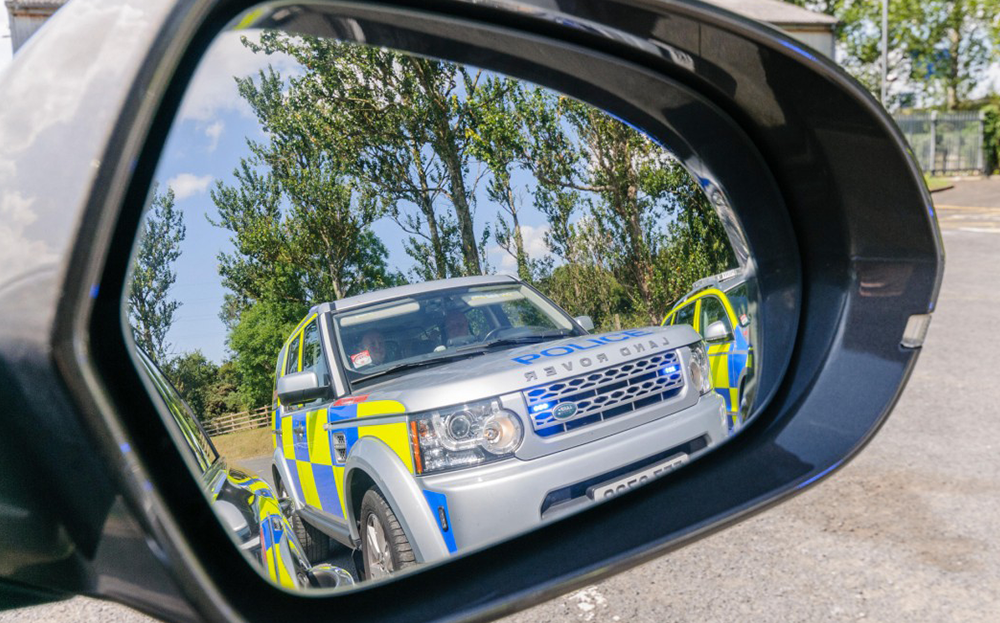The wrongs of overtaking on the inside: does being branded a careless driver fit the crime?
One daft move and I’m seen as a menace for years to come
I NEVER thought of myself as an antisocial driver, but apparently I am. Late last year I did what thousands of drivers do every day and what in many countries is perfectly legal: I “undertook” another car.
I was pulled over by police, told that the manoeuvre “fell below the standard expected of a reasonable, prudent and competent driver” and issued with a three-point penalty. And so I became another statistic in the crackdown on antisocial drivers.
For the past two years, since the police acquired new powers, they have been able to issue on-the-spot penalties for offences that are often thought of as minor but are cited by other road users as among the most annoying driving habits. These include tailgating, lane-hogging and undertaking. The offences come under the catch-all term “driving without due care and attention”.
Browse NEW or USED cars for sale
Before I was caught, I supported the initiative, but now I am not so sure. This isn’t because I think I was innocent (I admit what I did was wrong and haven’t done it again). It is the fact that the consequences appear to be out of proportion to the offence.
After I was caught and the details logged on the Driver and Vehicle Licensing Agency database, my insurance premium increased beyond what seemed reasonable, I could no longer hire cars for holidays, an attempt to buy a new car was almost scuppered and there was an impact on my job.
Before we come to that, let me try to explain — not excuse — my moment of madness.
After I was caught and the details logged on the Driver and Vehicle Licensing Agency database, my insurance premium increased beyond what seemed reasonable, I could no longer hire cars for holidays, an attempt to buy a new car was almost scuppered and there was an impact on my job
I was on the A3 Kingston bypass, near Wimbledon in southwest London, a busy three-lane thoroughfare where drivers can be seen routinely ignoring the rules of the road in order to keep traffic moving. For two miles before I undertook I had been behind a car driving in the outside lane at 50mph — the limit for that section of the A3.
As reported in Driving , police may soon clamp down on drivers travelling at even slightly over the limit, but at present, guidelines allow for the speed limit to be exceeded by 10% plus 2mph, which is why many motorists on motorways travel at up to 79mph and why, on 50mph sections of the A3, they are happy to cruise at up to 57mph. Many travel at around 60mph, in fact.
That’s also why, on the day of my offence, I had a queue of traffic behind me in the outside lane as far as I could see. To be fair to the driver blocking my path, he couldn’t move left because of the fact that another driver, also travelling at 50mph, was in the middle lane.
The left-hand lane was clear, and, as motorists should know, the inside lane is for driving while the other two are for overtaking. Rule 264 of the Highway Code states: “You should always drive in the left-hand lane when the road ahead is clear. If you are overtaking a number of slower-moving vehicles, you should return to the left-hand lane as soon as you are safely past.”
To my mind this middle-lane hog was the reason for the tailback.
I have a pretty calm temperament so at no point would I have described myself as angry, but frustration was beginning to build. Knowing the proper lane discipline rules, and wishing to stick to them, was part of the irritation.
I checked my mirrors, indicated that I was changing lanes and pulled into the inside lane before wafting past the mobile road block. I knew it was against the rules and I didn’t enjoy doing it, but I did take care.
 Drivers seldom use the left hand lane of the section of A3 Kingston Bypass (Robin Hood Way) on which Will was caught undertaking [Map data ©2015 Google]
Drivers seldom use the left hand lane of the section of A3 Kingston Bypass (Robin Hood Way) on which Will was caught undertaking [Map data ©2015 Google]
They pointed to my increased speed as I made the manoeuvre, and a slip road entering the A3 at that point. I made the decision to agree with the officers and admit wrongdoing. Perhaps this submissive attitude helped me avoid a fine and prevented me from getting more than three points. Maximum penalties are a £5,000 fine, up to nine points or even disqualification.
What I did was wrong but I don’t believe I should have been branded a careless driver.
Until the police acquired powers to pull over drivers and issue fixed-penalty notices, careless driving offences had to be dealt with by the courts. This was time-consuming and resulted in many “minor infringements” (such as tailgating and undertaking) not being policed. If an officer spotted a car weaving in and out of traffic or mounting a pavement, the driver would be pulled over and subsequently receive a court summons. But a tailgater? Usually it wasn’t worth the hassle.
The new powers were meant to correct the anomaly. It was these so-called minor offences that infuriated drivers: a survey of 4,000 motorists by the price comparison website Confused.com identified hogging the middle lane as the third-most-hated habit (16% of respondents) behind failing to indicate (28%) and tailgating (29%).
The problem, I discovered, was that a conviction for undertaking is now viewed by officialdom as the same as a conviction for causing an accident and injuring someone. After I was caught, my licence was stamped with the code CD10, which indicates “driving without due care and attention”. As I have discovered, put that code into a computer system — whether it be for car hire or insurance — and it flashes up red.
Porsche, among others, now won’t lend me a car for five years — two years after my conviction expires
The first time I became aware of this was when I came to renew my insurance policy. The CD10 code resulted in a 40% increase — for comparison, the average increase for a speeding conviction (the SP30 code) is around 14%. Next I discovered I was no longer able to drive certain cars.
As a motoring journalist I often borrow vehicles from manufacturers to test and review. I suddenly found myself having awkward conversations with car makers. Porsche, among others, now won’t lend me a car for five years — two years after my conviction expires. Trying to hire a car for a family holiday will be difficult: many car hire companies, including Avis and Europcar, refuse point blank to offer a car to someone with a CD10 conviction.
And that’s not all: I was in a Ford dealership last week buying a new car. The deal was done, all I needed was to present my licence so the dealer could add me to Ford’s seven-day “drive home” insurance, which would enable me to drive the car away.
The computer said no, the broker’s screen turned red and a klaxon sounded (well, not quite). But even so, the result was the same: no seven-day insurance deal, sorry.
I often find myself looking back at that day in October on the A3 and replaying events in my head. The more I do it, the more I regret undertaking.
And this is why: last month a driver was convicted for driving persistently at 60mph in the middle lane of the M62 between Rochdale and Huddersfield — and received a £940 fine and five penalty points.
After the hearing, PC Nigel Fawcett-Jones from the road policing unit said: “Lane-hogging causes congestion and inconvenience to other road users. It reduces the capacity of roads and motorways, and can lead to dangerous situations where other drivers tailgate the vehicle in front to try to get the lane-hogger to move over.”
In other words, had I not undertaken the A3 lane blockers, perhaps they would have been the ones to be stopped by police and saddled with a CD10.
Regardless, I am now probably one of the most careful drivers on the road. I no longer undertake. I also no longer drive at 10% plus 2mph — I stick to the speed limit. Even if it means I am now the one with frustrated drivers queuing behind.
Running a risk: how a minor offence can now label you as a high risk careless driver
Additional reporting: Dominic Tobin
Drivers who have committed vastly different offences risk being lumped together in the same category under the system of penalty codes. The result is that many drivers may be unfairly penalised by insurance companies that assume they are a higher risk than they really are.
The recent change in the law that allows police officers to issue penalty notices for offences such as lane-hogging and undertaking makes it more likely that drivers will be punished — previously the offender had to be taken to court. However, because there is no specific offence covering these types of manoeuvre, police issue the penalty under the catch-all of driving without due care and attention — previously used mainly to prosecute more serious cases, such as causing an accident in which someone was injured.
The points are referred to with a code beginning with CD (careless driving), which must be declared to insurers. Motoring groups say that drivers are unaware that this means many organisations will treat them as high risk. “Although the fine and the points are the same as for speeding, an insurer will regard a careless driving offence as more dangerous,” says Ian Crowder of AA Insurance. “Risk data is based on historical experience [from the time] when careless driving offences were prosecuted in court.”
Tiger.co.uk, a car insurance comparison site, found that insurers penalised customers who had CD points twice as heavily as those caught speeding. A quote for a male Ford Focus owner in Ipswich was £419; with three points for speeding it increased by £58; with a CD10 undertaking offence it rose to £558 — an extra £139.
Earlier this year police figures suggested that 13,000 drivers a year who committed offences such as lane-hogging, undertaking and tailgating were receiving on-the-spot penalties.
Click to read car REVIEWS or search NEW or USED cars for sale on driving.co.uk





